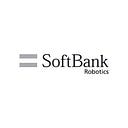How Technology is Driving the Future of Facilities Management
Building owners and property managers require a centralized, holistic view of all costs and operations for every building they own — from the basement to the roof. But instead of receiving the information they need, they get siloed reports that leave them disconnected from measurable results.
There are many reasons for the data disconnect, but a primary one is that managers often contract-out to vendors. In return, the vendors send out reports on whether contract targets have been met — not detailed data points that could help managers to reduce inefficiencies.
But change is on the horizon: A 2018 Global Facilities Management Market Report estimates that within five years, the market will be largely digitized. Commercial real estate firm CBRE also quotes findingsfrom research and consulting organization Frost & Sullivan that by 2025, the global outsourced market in FM services will be “worth $1 trillion, with bundled and integrated services accounting for 35 percent of global revenues.”
Productivity improvements are on the way. But how can building owners and property managers receive the data they require for improved services and reduced costs?
How Technology Improves Building Management Outcomes
According to the Global FM report, the future of facilities management “will integrate various mobile infrastructure and technologies, devices and smart work concepts that allow employees to function with a higher degree of flexibility, collaboration channels through anytime, anywhere work, and better productivity leading to increased growth revenue.”
Here are three areas where technology is driving efficiencies and insights in FM:
- Energy: Smart buildings reduce energy usage — the largest operating expenditure for any building. can adjust the lighting to eliminate over-lit workspaces, or completely cut-off power to specific equipment when not in use.
- Maintenance: Sensors help property managers to monitor conditions in real-time from anywhere on the property. Sensors in soap dispensers, trash cans and toilet paper holders can send notifications when something needs attention, for example.
- Cleaning: Robotic devices can automate certain cleaning tasks within a job — for instance, vacuuming and floor cleaning. These devices can also collect key data to inform the cleaning process over time.
According to the CBRE 2016 EMEA Occupier Survey, 75 percent of respondents said data was critical to achieving strategic real-estate goals. In its top trends report, CBRE reiterated why:
They want to measure the key drivers of performance — property and people — and the links between them. In most cases they recognize that the technology tools exist to allow them to do this and that there is no shortage of information per se, but harnessing it to address strategic challenges is still a major task.
Cleaning Automation Is a Perfect Entry Point for Tech Adoption
Cleaning automation is an ideal entry point for technology in facilities management — it drives value for both tenants and owners. Here are three factors to take into consideration:
- Facility image and productivity continues to be a top priority for facility managers.
- Cleaning is the second-largest cost after energy in building management.
- The repetitive and manual tasks in cleaning are a smart choice for tech adoption.
There are at many ways cleaning automation can add value to facilities management. Critically:
You will know the job is getting done: Poor janitorial service is among the top three complaints by office workers. As a facility manager, it’s hard to get proof about what parts of the cleaning job were done. Cleaning automation can not only ensure the job gets done consistently, but the devices can also prove it with data.
Know the job is getting done well: One of the promises of cleaning automation is standardization. Robotic devices like autonomous vacuum sweepers eliminate human error and will do the job to completion every time. This translates to happier tenants, which can impact retention and the bottom line.
The Future Is Now
Property managers are in the best position to identify efficiencies and make strategic decisions about a building. And now with technology and data, those decisions can be well informed and not driven by guesses and intuition.
As you begin to take into consideration how automation can make your buildings run smoother, look for vendors that adopt technology and deliver the reports you need. Commercial cleaners, for example, are increasingly looking to demonstrate performance — and cleaning automation is one way they are delivering it.
Whiz from SoftBank Robotics captures the cleaning performance data more reliably and repeatedly than checklists and human observation. Finally: building owners and property managers can get the holistic data they need. The future is now, with Whiz.
REQUEST A FREE CLEAN TO LEARN MORE
If you are interested in learning more about how automation can give you the data you require to drive performance-based contracts, contact us to get in touch.
Written by: SoftBank Robotics America
